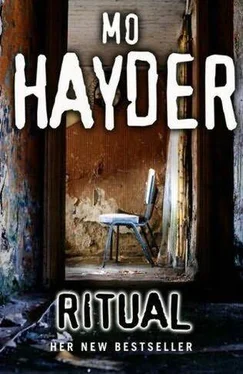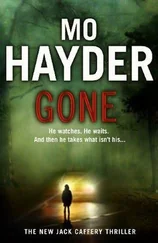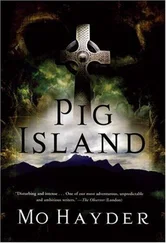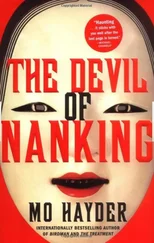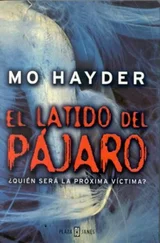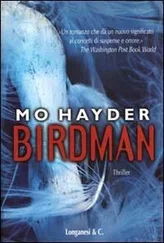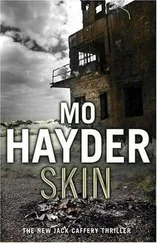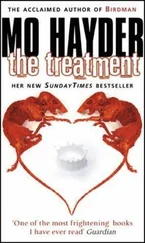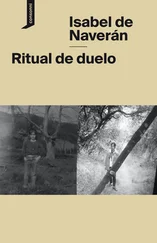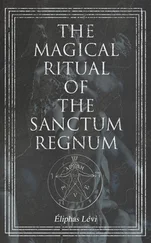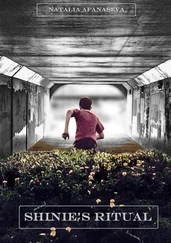Flea didn't know what she felt guiltiest about. That she hadn't been with Thom in Bushman's Hole when it had happened, or that, deep down, she'd been glad that Thom had gone along on the trip to Danielskuil. It used to be her Dad pushed, always urging her on — 'See that tree, the big one? Bet you can climb that , Flea Marley!' She'd never thought of saying no, just done as she was told — knowing in some dark corner of her heart that if she didn't it would mark her out as different. Weak, somehow. Not a true Marley. But then Thom had come along, a shy little thing who didn't walk until he was nearly two, and Dad's focus shifted away from her and on to Thom. The message from Dad was clear: Never show fear. There is no place in this family for cowardice . It became instinct, the same instinct that had driven Thom years later when he had climbed with his parents into the cold, motionless eye of Boesmansgat.
After his parents had disappeared, Thom had had to spend six hours coming back to the surface, stopping every few metres to decompress and allow the concentrated gases to expand and leave his body because helium lodged not in the soft tissue like nitrogen but in the bony cavities and took longer to dissipate. Tears filled his mask and a helium bubble had formed in his inner ear making his head spin. One of the police divers who'd come in when the alarm was raised had had to clip him to the shot line D-ring with a karabiner and stay with him because he'd lost the feeling in his hands and didn't know any longer which way was up. The last ten metres were the worst, the most dangerous of all, and the most frustrating because each stop was for more than an hour and he could see the surface, could see the sun filtering down, but had to wait, had to stay there in the cold, with only one thing to think about: how he'd failed and, worse, what was happening three hundred metres below him.
As far as anyone knew, and the truth was no one did know for sure, there wasn't a big enough outlet at the bottom of the sinkhole for a body to pass through, so Mum and Dad would have settled, unmoving, on the bottom. Using Thom's statement, the investigators had worked out the approximate area they'd have ended, and sent a remote-operated vehicle, a small submarine mounted with a camera, down to search the side and the very deepest corner of Bushman's. But the ROV could see nothing. There was no point in waiting for the bodies to float. As they began to decompose, when most bodies would lift to the surface, the Marleys never would; the gases of decomposition would be under too much pressure to float them and, anyway, the diving equipment would keep them weighted down until they rotted where they lay and all that was left of them was the bony pickings. The investigators had run out of resources. There was nothing more that could be done to recover them.
There were other bodies around the world suspended in their own silence, nosed and buffeted by currents and fish, divers who'd died in places so treacherous that it would cost the lives of other divers to rescue them. She'd been lectured on it by the South African police, by her counsellor, by Kaiser, to accept that Mum and Dad's last resting place was on the floor of Bushman's Hole. And she'd made a kind of peace with it. But she never stopped thinking about it.
Sometimes Flea got pictures of them on her inner eye, fleshless, eyeless armatures floating on an axis. She'd turn them over and over in her idle hours, trying to place them, trying to imagine how they'd be lying. Thom said Dad had gone first, but she hadn't needed to hear it from him. In a way somehow connected to his meditation in the study, and somehow to the long hours he had spent with Kaiser, she knew instinctively it would have been that way: Dad going first. And so her mind had settled on a picture with Dad lying face down, arms plunged into the sand up to the shoulders, as if he was embracing the floor of the cave, while Mum was always lying on her back, facing the surface with her arms up, as if she was still hoping someone might notice her mistake and pull her back to the world.
But now, standing at the sink, the midday sun coming through and picking out all the dust and details in the kitchen, Flea thought more about the way they'd sunk. Could they have gone down in the opposite direction, away from the corner of the hole that had been searched? Was that what Mum had been trying to say?
At the table Thom was writing fastidiously. She imagined saying to him: Could there be something wrong in what you remember about the accident? Maybe we should sit down and go through it all again?
But no. No point in upsetting him over something flimsy. An hallucination. She turned on the tap and let the sink fill, soap bubbles swirling and catching the sunlight. She looked again at the way the greyish veins meandered down her inner arms. The ibogaine was going to open her skull, pour light in — and maybe by this evening she might be able to explain what she was missing. She wasn't going to talk to Thom about it, but one thing was sure: she was going to ask Mum on which side of the hole they'd ended up.
Kwanele Dlamini's last known address was in Nailsea: a brick-built Georgian-style detached three-bedroom house on a nineteen-nineties gated development. The houses were almost identical in their textured sandstone, each had a portion of lawn, a garage and a US-style mailbox at the front. Dlamini's house was at the end of the road, with a view of the airport control tower at Backwell Hill, but when Caffery rang the bell the door was answered not by Dlamini but by a blonde woman in belted low-rider jeans and a pink T-shirt that said 'PORN STAR' in glittering letters.
'Long gone,' she said, when he asked for Dlamini, 'back where he come from, and I won't be hearing from him again. Don't ask me to contact him — I've tried, believe me.'
But she invited Caffery in anyway. She seemed to want the company, and he knew from the look she gave him, checking out his body through his open jacket to see if he was in shape — from that and from the way she walked in front of him, moving herself carefully, conscious of her hips — he knew right then that he could if he wanted.
They went to the back of the house into the living room where two little girls in identical pink trackies, their blonde hair scrunched on their heads in pink silk flowers, lay on the floor watching Bratz on a plasma-screen TV. The tracksuits had 'Barbie' spelled out across the bottoms. Caffery thought the girls couldn't have been more than ten or eleven.
'Hey,' the woman aimed a tanned foot in a pink tennis sock at one child's feet, 'keep the volume down. I'm going to be in here and I don't want no interrupting.'
They didn't answer, but one held up a remote control and turned the volume down a few notches. The woman took him through etched-glass double doors into a palm-filled conservatory looking out over a fenced garden with a pink and lavender swing seat in the centre of the patio.
'Nice kids,' he said.
'Yeah.'
She pushed a Dobermann from where it sat on a wicker sofa. It loped away into the living room, its claws ticker-tickering on the tiles, and she bent over to plump up the cushions, blowing off dog hairs.
'He was importing stuff, gave the business his best shot, and when that didn't work out it was like everything fell apart.' She pressed the cushion on to the sofa and stood back to allow Caffery to sit. 'I can't tell you where he is. I tried to get in touch with him, but he's disappeared. Back home.'
'This his house, then?'
She snorted. 'Oh, please. Do me a favour. It was my ex's, before Kwanele, but now it's mine and the girls'. And long may it last.'
'The girls aren't his?'
She gave him a look, as if she thought he was joking. 'You winding me up? Do they look like his?'
Читать дальше
